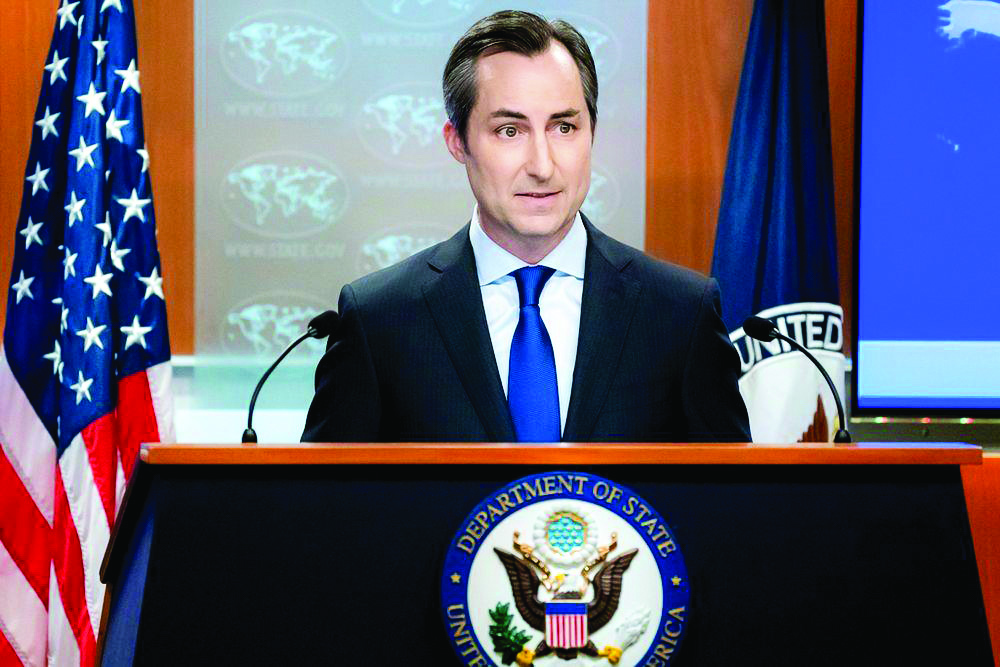State Department spokesperson could not come up with any credible response on how to defend Yunus.
New Delhi: Recent developments in Dhaka, including a controversial statement by a close advisor to Muhammad Yunus advocating for the annexation of parts of India, the detention of journalists, and the caretaker Prime Minister outlining a timeline of more than a year for possible elections, have put in a difficult position officials in Washington, especially in the State Department, which played a key role in deposing Prime Minister Sheikh Hasina and installing Yunus in power through a “coup”.
Last week the outgoing State Department spokesperson Matthew Miller, while responding to questions on these issues from journalists, could not come up with any credible response on how to defend these developments.
When asked about the US government’s stance on a Facebook post by Mahfuz Alam—who had been hailed by Yunus during the Clinton Global Initiative in New York as the “brain” behind the campaign to remove Sheikh Hasina from power—State Department spokesperson Matthew Miller stated that he was unaware of the comment and declined to respond. Alam’s post, which gained significant traction online, was deleted after two hours.
On the next question of the recent Bangladesh international crimes tribunal ban on Hasina’s speeches, which clearly violates constitutional right and amounts to suppression of free speech, Miller again declined to comment.
Similarly, on the question by journalists over the arrest
On asked how the State Department saw the announcement by Mohammed Yunus that the general elections would happen in “late 2025 or early 2026”, Miller sought time to come back with a response to this, indicating that the State Department had no valid reason to justify this inordinate delay in a country where all democratic, legislative and executive arms are functioning properly.
Washington, which has denied playing any role in removing Hasina and installing Yunus, is walking a tightrope, officials believe, with Yunus and his advisors slowly and gradually “evolving” into an independent entity, who in the coming times will take decisions that are likely to impact US interests in the region, especially vis-à-vis India.
The annexation statement with regards to India, which the US treats as a close ally in the region, continued detention of journalists without bail and allegations of suppression of free speech, announcement of general elections to take place in late 2025 or early 2026 which is clearly an unusually long interim period, are going to dent Washington’s long held efforts to present itself as a guiding light for democracies.
Washington, so far, has strongly endorsed Yunus and his decisions, which includes embarking on an unprecedented path of developing close ties with Islamabad, which has prompted further scrutiny of US support for Yunus’ leadership.
The defensive and evasive tone adopted by the US State Department spokesperson Miller, as evident in his responses, is also being seen as a deliberate strategy to avoid entangling the US in Bangladesh’s internal matters.
Directly addressing inflammatory statements by an associate of Yunus or engaging in human rights accusations would also risk reinforcing the narrative that the US is overly involved in Yunus’ government, officials believe.
However, this evasiveness by the State Department has generated criticism, as by playing along Yunus, the State Department is appearing complicit in controversial aspects of his administration. The State Department’s cautious, defensive rhetoric is speaking volumes.

